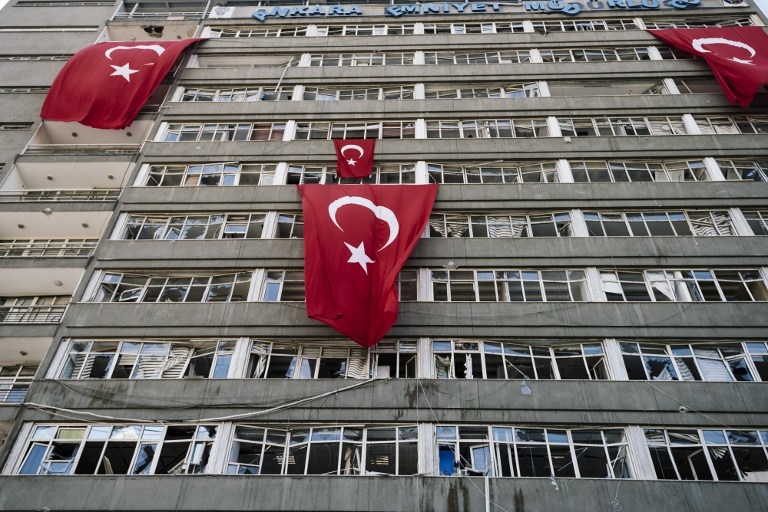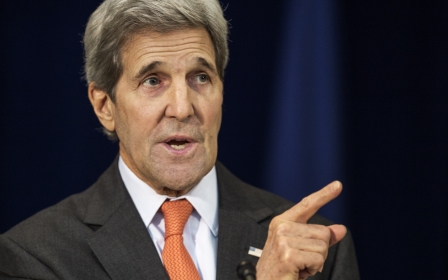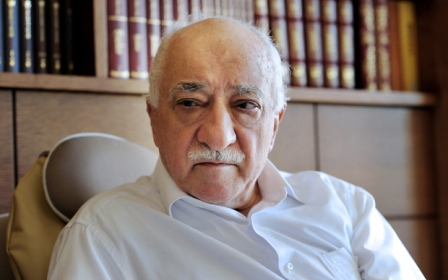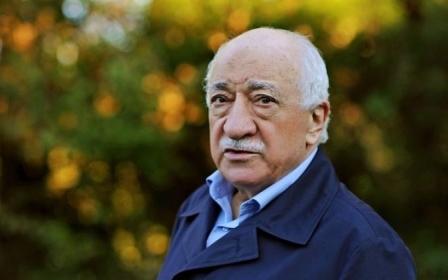Welcome to Gulenland

Dozens of generals, colonels, majors and captains. A bank. Hundreds of famous sports stars. Thousands of judges, prosecutors and lawyers in the judiciary.
Hundreds of NGOs tackling issues from justice to geopolitics and from energy to interfaith dialogue. Thousands of intelligence agents in the police. Dozens of famous artists. Thousands of private schools and hundreds of prep-schools.
Thousands of companies in sectors from construction to advertising, from publishing to logistics, from gold mining to petrol refining, and from film production to textiles.
If it is necessary to correctly describe the picture that emerges, we are looking at Gulenland.
This heavily abridged list contains only some of the areas of activity of the Gulenist movement, which Turkey has designated as a terrorist organisation and which tried to carry out a coup through bloody attacks in Turkey on the evening of 15 July.
When you carry out a basic Google image search for their global activities, you are presented with a worldwide album of Fethullah Gulen and the Gulenists in friendly poses with state leaders and the Pope, and in photographs taken with important people from billionaire businessmen to famous musicians.
I am aware that this list and the things that have happened appear truly surreal, at least to the Western world. But everything that happened on the night of 15 July in Turkey was real - and also deadly, brutal, and terrifying.
Hundreds of people were cut down on the streets by tanks, snipers and bombs. The parliament and presidential complex were bombed for the first time in Turkey’s history. There was an attempt to assassinate the country’s president, who escaped by leaving a hotel only minutes before the putschist soldiers arrived. Our close friends were murdered by the putschists.
Just like the Islamic State rejects or does not claim its terror attacks in Turkey and the West, Gulen, at present living in the United States and who carried out this coup attempt, naturally does not accept what he did. Those saying the bloody coup attempt carried out in Turkey was a "hoax" or "staged" were taking no different a position to those who claimed that the 9/11 attack on the World Trade Center in New York was organised by America.
In fact, it is unsurprising that many media organisations in the West approached the bloody coup from a conspiratorial approach. What occurred during the bloody coup, which in Egypt they were not even able to call a coup, was simply a form of intellectual bankruptcy.
Infiltration
In the Gulen group, we see a missionary cult organised with modern and sophisticated intelligence techniques. The presence of the Gulenists in hundreds of different sectors helps the group to camouflage the organisation’s true intelligence and military power and its drive for further power accumulation.
Of course, a structure that carries out interfaith activities, holds conferences on fighting anti-semitism, and mentions peace and dialogue in two out of every three sentences is not usually mentioned in terms of soldiers, the police, intelligence and a coup.
Gulen’s relationship to coups in general is no secret to those who know Turkish political history. This is the story of a person who openly supported the bloody 1980 military coup, who wrote accolades to soldiers alongside the most racist of statements in relation to the Kurdish issue throughout the 1980s and 1990s, and who openly supported the 1997 coup.
The earliest press organ of the Gulen movement was named sızıntı ("leak" and also "infiltration"). In retrospect, it seems that this name was an ironic harbinger of what was to come. With the passage of time, the vast majority of Turkish society and political classes has come to realise how obsessed the group was with intelligence activities and with the presence within the military, police and judiciary.
Its public statements, writings and activities have already proved this over and over. For example, this group celebrated the military cadres who carried out the 1980 coup, in which thousands of people lost their lives, tens of thousands suffered unthinkable torture, and hundreds of thousands were arrested, as the messiahs who had saved the country.
This organisation tried to arrest National Intelligence Organisation (MIT) undersecretary Hakan Fidan, who was specifically entrusted by then prime minister and now President Recep Tayyip Erdogan to find a solution to the Kurdish issue on 7 February 2012, in order both to end this process and also to showcase their self-ascribed credentials as an alternative centre of power.
Likewise, the Gulenists attempted a political coup against the government on 17 and 25 December 2013, after they came to appreciate that, lacking legitimacy within the political system and without a mandate from society, the government would not allow them to create an alternative state within the state.
To put it more clearly, everyone who followed Gulen closely was aware that he was greedy for power and a friend to coup plotters well before July's coup attempt.
Age of chaos
What must now be investigated is the alternative and parallel organisation fast strengthening within the world system in an age of nation states and global organisations. It is no coincidence that apocalyptic missionary organisations like the Gulen movement and the Islamic State group emerged from political and economic chaos, especially after the millennium.
How do these types of structures organise themselves and direct their human capital into bloody attacks despite all sophisticated security systems, open society mechanisms and the communications revolution? IS and the Gulen movement are two similar terror organisations that have laid out their own missions as saviours of themselves.
They both carry out activities targeted directly at state mechanisms: one through creating chaos in the Middle East, the other through much more sophisticated techniques. Both are multicultural and on good terms with intelligence organisations. People from over 100 nations have joined IS. The Gulen organisation operates in over 100 countries.
While IS intervenes in the Middle East to ensure that instability continues, the Gulen organisation aimed to infiltrate first Turkey and then the West to provoke the same instability.
This threat has now been halted in Turkey. When set against the civil war, instability and crises in its immediate neighborhood, Turkey is an island of stability in an ocean of instability. If a coup had been carried through on 15 July, it could have led to a new era in which serious geopolitical consequences would have been in the offing for the Middle East, the Caucasus and the Balkans.
Gulenist terrorism aims to terminate Turkish exceptionalism and turn it into an unstable and crisis-ridden country. Thankfully, this aim remains unfulfilled. Turkey is determined to face and quash this network and its capacity to harm in Turkey. In this struggle, Turkey rightfully expects and demands the cooperation and solidarity of its allies.
Blow to regional stability
At this stage, Washington's failure to return Gulen to Turkey would not merely be a matter of relations between two countries; it is intimately and directly connected to regional stability.
It is needless to say that not turning over a man who is responsible for the massacre of innocent civilians and of masterminding a coup clouded with a full-scale terror campaign against the democratically elected government of Turkey goes against the spirit of friendship between the both countries.
The US should not let Turkish-American relations, which are deep and strategic, be held hostage to the whims and activities of the leader of a terrorist organisation. In this respect, the possibility that the man responsible for a bloody coup attempt in Turkey should remain in an allied country or possibly escape the US in search of a new destination without getting arrested is unacceptable.
The issue of the Gulenist terrorist network and the extradition of its leader shouldn’t be solely understood within the confines of Turkish-American bilateral relations. It is more than that. It is bilateral, regional, and global. From this perspective, a US rejection of handing over Gulen to Turkey would represent a big blow to the search for regional stability.
To put the matter into perspective, the importance of Gulen, who organised the bloody 15 July coup attempt from a small town in America, to Turkey is akin to the importance to the US of Osama Bin Laden, who organised the 9/11 attacks from a cave in Afghanistan. Not giving up Gulen would therefore be the greatest possible blow to the regional and global fight against terrorism.
- Taha Ozhan is a member of Turkish Parliament and chairman of the Foreign Affairs Committee. He is an academic and writer. Ozhan holds a PhD in Politics and International Relations. He frequently comments and writes for international media. His latest book is Turkey and the Crisis of the Sykes-Picot Order (2015). You can follow him on Twitter @TahaOzhan
The views expressed in this article belong to the author and do not necessarily reflect the editorial policy of Middle East Eye.
Photo: The damaged Ankara police headquarters after it was bombed during the failed 15 July coup attempt (AFP)
New MEE newsletter: Jerusalem Dispatch
Sign up to get the latest insights and analysis on Israel-Palestine, alongside Turkey Unpacked and other MEE newsletters
Middle East Eye delivers independent and unrivalled coverage and analysis of the Middle East, North Africa and beyond. To learn more about republishing this content and the associated fees, please fill out this form. More about MEE can be found here.





